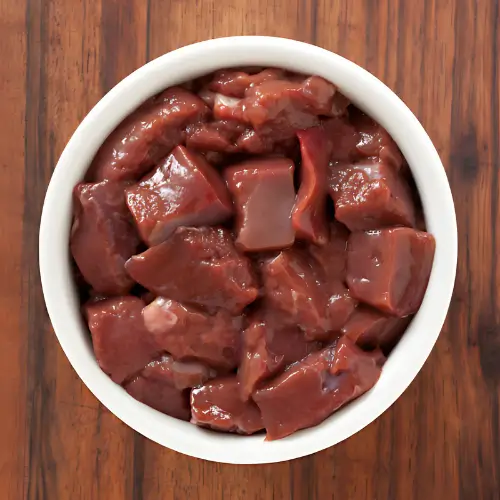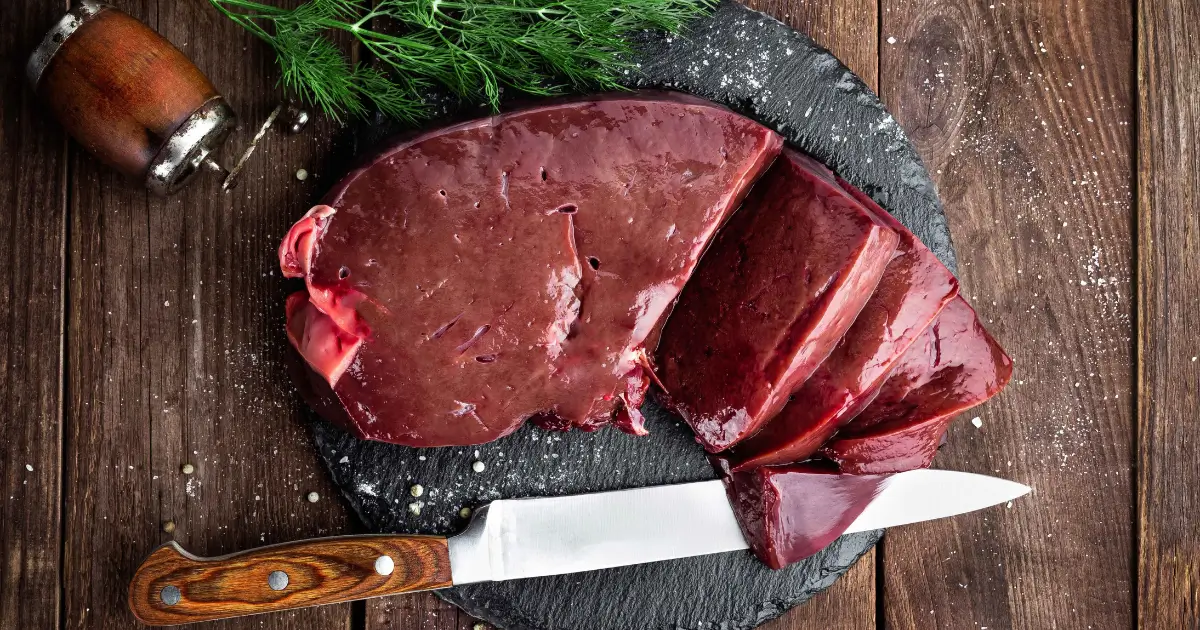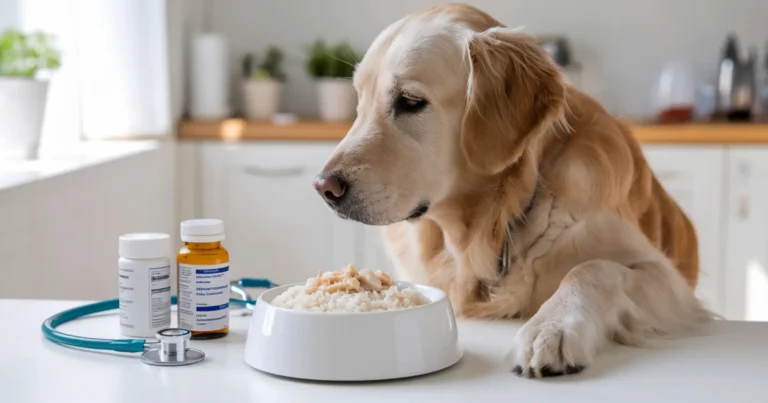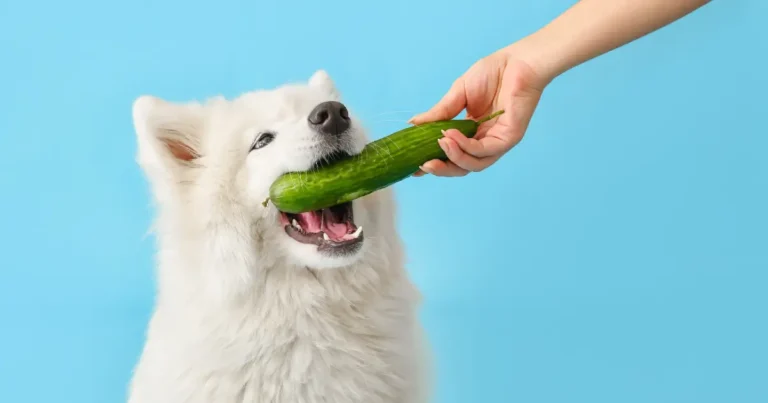Can Dogs Eat Liver? 7 Powerful Benefits and 3 Essential Tips
As a dog owner, you may wonder, can dogs eat liver safely? The good news is that liver isn’t just safe for dogs—it’s an incredibly nutritious addition to their diet when prepared and portioned correctly. Many pet owners who ask can dogs eat liver are surprised to learn about its exceptional nutritional profile and health benefits.
In this comprehensive guide, we’ll explore everything you need to know when researching can dogs eat liver safely and effectively. From the various types of liver available to proper preparation methods and serving sizes, you’ll discover how to incorporate this nutrient-dense organ meat into your furry friend’s diet.
Table of Contents
Can Dogs Eat Liver? The Quick Answer
Yes, dogs can eat liver, and it’s highly beneficial for them. When pet owners ask can dogs eat liver as part of their regular diet, veterinarians typically respond positively. Liver is one of the most nutrient-dense foods you can offer your canine companion, packed with vitamins, minerals, and high-quality protein.
However, when addressing can dogs eat liver safely, it’s important to note that there are guidelines regarding preparation methods, serving sizes, and frequency. So, can dogs eat liver every day? Not recommended—moderation is key to avoid potential vitamin A toxicity.
7 Powerful Health Benefits of Liver for Dogs
Understanding why can dogs eat liver beneficially requires looking at its impressive nutritional makeup. Here are seven significant health benefits your dog can gain from consuming liver in moderate amounts:
1. Rich Source of Vitamin A
When examining can dogs eat liver safely, the vitamin A content stands out as a major benefit:
- Supports healthy vision
- Enhances immune system function
- Promotes skin and coat health
- Facilitates proper growth and development
A single serving of liver can provide your dog with their entire daily requirement of vitamin A, supporting overall health and well-being.
2. High-Quality Protein Content
For those wondering can dogs eat liver for protein benefits, the answer is definitely yes. Liver offers complete, highly digestible protein that contains all the essential amino acids your dog needs. This protein helps:
- Build and repair muscle tissue
- Support enzyme production
- Maintain healthy skin and coat
- Boost immune function
Unlike plant proteins, animal-sourced proteins from liver are more bioavailable, meaning your dog can utilize these nutrients more efficiently.
3. B-Vitamin Powerhouse
A strong reason to think about whether can dogs eat liver or not, is that it contains B vitamins. Liver is packed with B vitamins, including:
- B12: Essential for nerve function and red blood cell production
- Folate: Important for DNA synthesis and cell division
- Riboflavin: Supports energy metabolism
- Niacin: Promotes healthy digestion and nervous system function
These B vitamins work together to support your dog’s energy levels, brain health, and cellular functions.
4. Natural Source of Iron
Is liver good for dogs with low energy or anemia concerns? Absolutely. The liver provides heme iron, the most bioavailable form of iron, which helps:
- Transport oxygen throughout the body
- Prevent anemia
- Support energy production
- Enhance cognitive function
This makes liver particularly beneficial for puppies, senior dogs, and active working breeds.
5. Essential Minerals
When asking can dogs eat liver for mineral benefits, the answer is clear. Numerous minerals essential to canine health are found in liver, including:
- Zinc: Supports immune function and skin health
- Copper: Essential for red blood cell formation
- Phosphorus: Works with calcium for bone strength
- Selenium: Protects cells from harm by acting as an antioxidant.
Together, these minerals assist a number of body processes and general well-being.
6. Natural Detoxifier
Ironically, while the liver is responsible for detoxification in the body, consuming liver can help support your dog’s own detoxification processes by providing nutrients that the liver needs to function optimally. This is another reason why can dogs eat liver, which is answered affirmatively by veterinary nutritionists.
7. Cognitive Health Support
The combination of B vitamins, iron, and other nutrients in liver makes it beneficial for brain health and cognitive function. When asking is liver good for dogs with cognitive needs, consider that it’s particularly important for:
- Aging dogs
- Working breeds that require mental sharpness
- Puppies during critical developmental periods
Different Types of Liver: Which Is Best for Your Dog?
When exploring can dogs eat liver, it’s important to know that there are several types available, each with slightly different nutritional profiles. Let’s compare the most common types:
Can Dogs Eat Beef Liver?
Can dogs eat beef liver safely? Yes, beef liver is perhaps the most commonly fed liver to dogs and offers several advantages:
- Higher vitamin A content compared to other types
- Rich source of iron and zinc
- Readily available in most grocery stores
- Often more affordable than other organ meats
Not only can dogs eat beef liver, but it’s an excellent choice for most dogs and makes a nutritious addition to their diet when fed in moderation.
Can Dogs Eat Chicken Liver?
When wondering can dogs eat liver from chicken sources, the answer is yes. Chicken liver is another excellent option for dogs:
- Lower in calories than beef liver
- Contains slightly less vitamin A (good for more frequent feeding)
- Often easier to digest for sensitive stomachs
- Milder flavor that picky dogs might prefer
Many commercial dog foods include chicken liver due to its palatability and nutrient density.
Can Dogs Eat Turkey Liver?
Can dogs eat turkey liver? Yes, turkey liver is safe and nutritious for dogs:
- Similar nutritional profile to chicken liver
- Good source of selenium and zinc
- Often well-tolerated by dogs with food sensitivities
- Makes an excellent training treat when dehydrated
For pet parents asking can dogs eat turkey liver instead of other varieties, it’s a great alternative, especially for dogs with sensitivities to chicken or beef.
Other Liver Options
Dogs can also safely consume:
- Pork liver: High in vitamin D and thiamine
- Lamb liver: Rich in copper and B vitamins
- Duck liver: Contains healthy fats and iron
Comparing Nutritional Values of Different Liver Types
For those researching can dogs eat liver from different animals, this comparison table offers valuable insights:
| Liver Type | Vitamin A | Protein | Iron | Calorie Content | Best For |
|---|---|---|---|---|---|
| Beef Liver | Highest | 26g/100g | 6.5mg/100g | 135 kcal/100g | Maximum nutrition, active dogs |
| Chicken Liver | Moderate | 25g/100g | 9mg/100g | 119 kcal/100g | Regular feeding, sensitive stomachs |
| Turkey Liver | Moderate | 26g/100g | 8mg/100g | 127 kcal/100g | Training treats, allergic dogs |
| Pork Liver | High | 27g/100g | 18mg/100g | 141 kcal/100g | Iron deficiency, energy needs |
| Lamb Liver | High | 29g/100g | 7.5mg/100g | 148 kcal/100g | Growth, copper supplementation |
How to Cook Liver for Dogs: 3 Essential Preparation Methods
Now that we’ve established can dogs eat liver safely, let’s explore proper preparation methods. While raw feeding advocates sometimes recommend feeding raw liver, most veterinarians suggest cooking liver before serving it to your dog. Learning how to cook liver for dogs properly eliminates potential pathogens while retaining most of the nutritional benefits. Here are three safe and effective methods:
1. Boiling Method
Understanding how to cook liver for dogs through boiling is simple and preserves most nutrients:
- Rinse the liver under cold water
- Cut into small, bite-sized pieces
- Cover the liver with enough water in a pot.
- Bring to a boil, then reduce to a simmer.
- Cook for 10-15 minutes until no longer pink inside
- Drain and cool before serving
Pro tip: The cooking liquid can be saved and used as a nutritious broth to pour over your dog’s regular food.
2. Baking Method
Another excellent option for how to cook liver for dogs is the baking method, which creates a chewy texture many dogs love:
- Preheat oven to 350°F (175°C)
- Rinse the liver and pat dry
- Cut into thin strips for training treats or larger pieces for meals
- Place on a parchment-lined baking sheet
- Bake until firm but not crunchy, 15 to 20 minutes.
- Cool completely before serving
Pro tip: For training treats, slice liver very thin before baking, then cut into tiny pieces after cooking.
3. Dehydrating Method
Dehydrating is ideal for producing treats when looking at how to cook liver for dogs.
- Slice the liver into 1/4 inch strips
- Place in food dehydrator (or oven at lowest setting with door slightly open)
- Dehydrate for six to twelve hours, or until solid and dry.
- Keep in the fridge for up to two weeks in an airtight container.
Pro tip: Dehydrated liver treats can be broken into small pieces for training rewards that won’t crumble in your pocket.
How Much Liver Can Dogs Eat? Proper Serving Sizes
When addressing can dogs eat liver safely, portion control is crucial. The high vitamin A content in liver means that excessive consumption could potentially lead to hypervitaminosis A, a condition resulting from vitamin A toxicity.
Here’s a general guideline for serving sizes when determining can dogs eat liver amounts:
- Small dogs (under 20 lbs): No more than 1 ounce of liver, 1-2 times per week
- Medium dogs (20-50 lbs): No more than 2 ounces of liver, 1-2 times per week
- Large dogs (50+ lbs): No more than 4 ounces of liver, 1-2 times per week
For dogs on a raw diet, liver should make up approximately 5% of their total diet.
Keep in mind that these are just suggestions. Your dog may have different wants depending on:
- Age
- Health status
- Activity level
- Overall diet composition
Potential Risks and Precautions
While the answer to can dogs eat liver is yes, there are some precautions to keep in mind:
Vitamin A Toxicity
Excessive liver consumption can lead to vitamin A toxicity, which may cause:
- Bone deformities
- Weight loss
- Digestive upset
- Muscle weakness
- Joint pain
This is why moderation is key when feeding liver to your dog.
Quality Matters
When exploring can dogs eat liver safely, source quality is critical. Always source liver from reputable suppliers. Ideally, choose:
- Organic liver, when possible
- Hormone-free and antibiotic-free sources
- Human-grade liver rather than products specifically marketed for pets
Avoid These Mistakes
When learning how to cook liver for dogs, avoid these common errors:
- Adding seasonings: No garlic, onions, salt, or spices
- Frying in oil: Adds unnecessary fat and calories
- Combining with fatty ingredients: Can cause pancreatitis in sensitive dogs
- Feeding only liver: A balanced diet should be supplemented by liver, not substituted.
Special Considerations for Different Dogs
Not all dogs have the same nutritional needs or tolerances when considering can dogs eat liver. Here are a few important points to keep in mind for certain breeds of dogs:
Puppies
Puppies can benefit from the nutrients in liver, but when asking, can dogs eat liver for puppies, they should receive smaller portions:
- Introduce very small amounts initially
- Monitor for any digestive upset
- Make sure that liver isn’t a big part of your puppy’s healthy diet.


Senior Dogs
When considering is liver good for dogs in their senior years, older dogs may particularly benefit from liver’s nutrient density:
- B vitamins support cognitive function
- Iron helps maintain energy levels
- Protein supports muscle maintenance
- Consider smaller, more frequent servings for easier digestion
Dogs with Medical Conditions
Here are some health issues that might change how you answer the question “Can dogs eat liver safely?”
- Liver disease: Ironically, dogs with liver problems may need to avoid liver consumption. Consult your veterinarian.
- Kidney disease: The high protein content may not be suitable for dogs with kidney issues.
- Pancreatitis-prone dogs: The rich nature of liver may trigger flare-ups in sensitive dogs.
Always consult with your veterinarian before introducing liver to dogs with existing health conditions.
Creative Ways to Include Liver in Your Dog’s Diet
Looking for ways to incorporate liver into your dog’s meals? For those wondering can dogs eat liver in different forms, here are some creative ideas:
Liver Training Treats
Small pieces of dehydrated liver make excellent high-value training rewards:
- Highly motivating for most dogs
- Lightweight and non-greasy
- Can be broken into tiny pieces for multiple rewards
- Shelf-stable when properly dehydrated
Liver Toppers
For pet parents asking, can dogs eat liver as a meal enhancer, create an appetizing topper:
- Finely chop cooked liver
- Mix in a small amount of regular yogurt or pureed pumpkin.
- Spoon a tablespoon over regular meals
- Keep extra in the fridge for up to three days.
Frozen Liver Treats
When exploring how to cook liver for dogs for hot summer days:
- Blend cooked liver with water
- Pour into ice cube trays
- Freeze until solid
- Offer as an occasional cool treat
Liver and Vegetable Mix
For added nutrition:
- Finely chop and cook the liver
- Combine with dog-safe veggies such as pumpkin, green beans, or carrots.
- Portion appropriately and use as meal toppers or occasional treats
Key Takeaways
- Can dogs eat liver safely? Yes, when prepared properly and served in moderation
- Liver is exceptionally nutrient-dense, providing vitamins A, B complex, iron, and high-quality protein
- Can dogs eat beef liver, chicken liver, and turkey liver? All are excellent options with slightly different nutritional profiles
- Various methods for how to cook liver for dogs include boiling, baking, and dehydrating
- Serve in moderation (no more than 5% of total diet) to avoid vitamin A toxicity
- Always source high-quality liver from reputable suppliers
- Is liver good for dogs with health conditions? Please consult with your veterinarian before adding liver to their diet
Conclusion
The answer to can dogs eat liver is a resounding yes—it’s truly a nutritional powerhouse for dogs when fed appropriately. Whether you’re wondering can dogs eat beef liver, can dogs eat turkey liver, or other varieties, your canine companion can benefit from this nutrient-dense organ meat as part of a balanced diet. By understanding how to cook liver for dogs properly and following appropriate serving sizes, you can safely introduce this beneficial food to enhance your dog’s overall nutrition.
Remember that while the evidence confirming is liver good for dogs is substantial, it should complement, not replace, a complete and balanced diet. As with any dietary change, it’s always a good idea to consult with your veterinarian, especially if your dog has specific health concerns or dietary restrictions.
Have you tried feeding liver to your dog? Consider starting with small amounts and observing how your dog responds. With careful preparation and moderation, liver can be a delicious and nutritious addition to your dog’s meal plan that supports their health from the inside out.
Frequently Asked Questions (FAQs)
Why do veterinarians recommend liver when asked Can dogs eat liver?
Veterinarians often respond positively when asked can dogs eat liver because of its exceptional nutritional profile. The liver provides highly bioavailable forms of essential nutrients that support overall canine health. The dense concentration of vitamins, minerals, and quality protein makes it an excellent supplement to a balanced diet, provided it’s properly prepared and portioned according to the dog’s size and needs.
Is raw or cooked liver better when considering can dogs eat liver safely?
While some raw feeding advocates promote raw liver, most veterinarians recommend cooking liver before feeding it to dogs. When asking can dogs eat liver in its raw form, there are concerns about potential pathogens like bacteria and parasites. Cooking eliminates these risks while preserving most of the nutritional benefits. Boiling, baking, or dehydrating are all excellent preparation methods that maintain nutritional value while ensuring safety.
How often can I feed liver to my dog?
For most healthy adult dogs, feeding liver 1-2 times per week in appropriate portions is ideal. When determining can dogs eat liver frequency, it’s important to remember that even good things require moderation. Small dogs should receive no more than 1 ounce per serving, medium dogs about 2 ounces, and large dogs up to 4 ounces. Dogs on raw diets should consume liver as approximately 5% of their total diet. Always introduce liver gradually and monitor your dog for any digestive upset.
Is turkey liver as nutritious as beef liver when considering can dogs eat turkey liver?
Yes, can dogs eat turkey liver as a healthy beef liver substitute? Absolutely. While beef liver contains slightly higher levels of vitamin A, turkey liver offers comparable protein levels and is often better tolerated by dogs with sensitivities to beef. For dogs with food allergies, turkey liver can be an excellent alternative that still provides the essential nutrients that make liver beneficial. The serving sizes and preparation methods remain similar regardless of which type you choose.
Can puppies eat liver safely?
Yes, Puppies can eat small amounts of liver without getting sick. When considering can dogs eat liver for puppies specifically, the nutrients in liver, including iron and B vitamins, support healthy growth and development. However, compared to adult dogs, puppies should have smaller portions because they are more susceptible to vitamin A excess. Start with small amounts and add more as they get bigger. Always ensure liver is just one component of a balanced, age-appropriate diet for your puppy.







